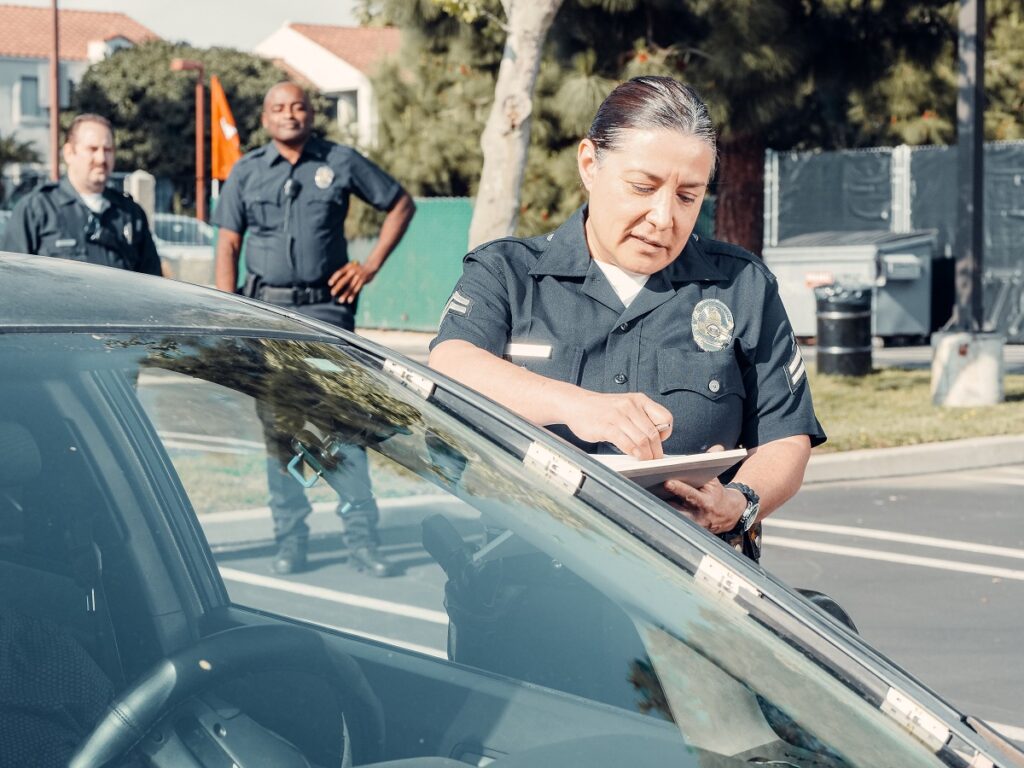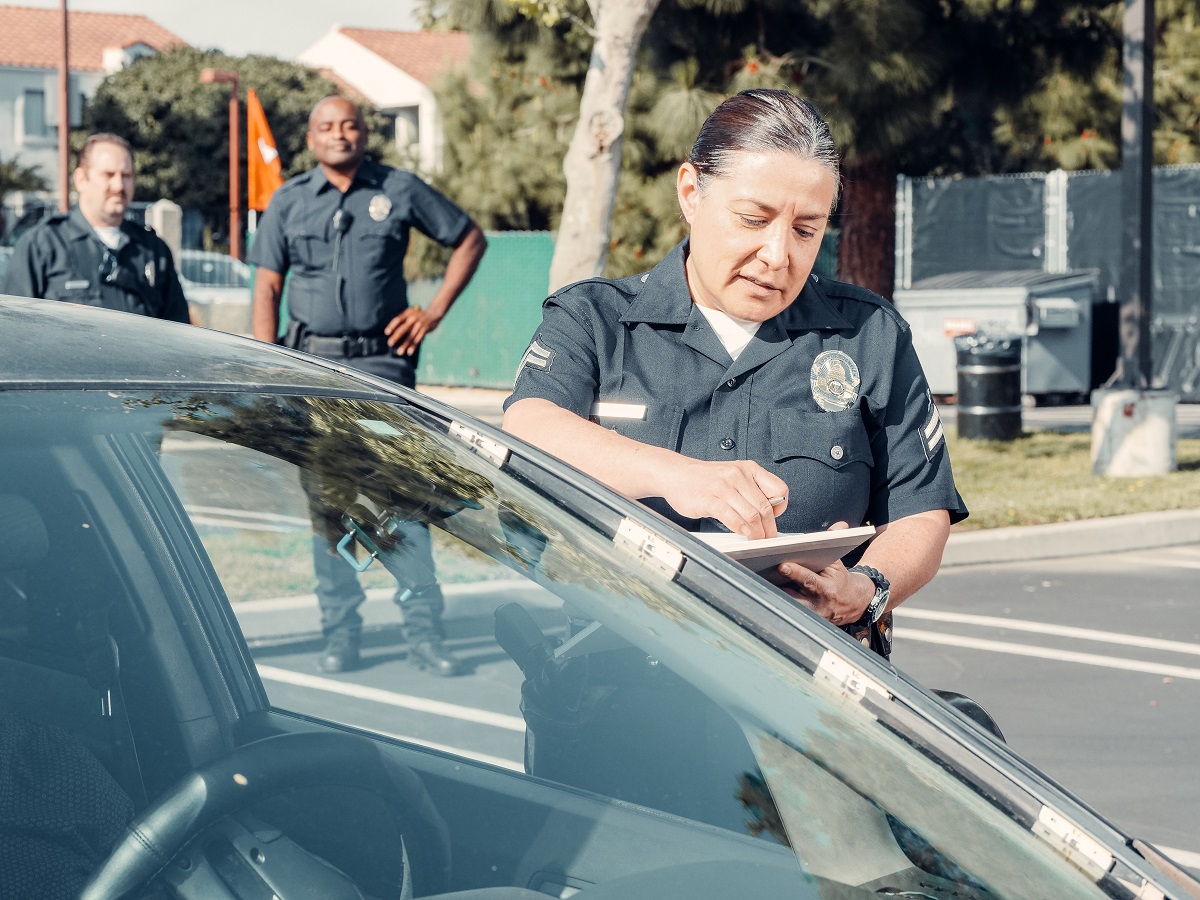Speeding Violation: 10 Questions You Should Avoid Answering

Being pulled over by a police officer can be an intimidating experience. Nobody wants to get in trouble for a speeding violation or other traffic offenses. That’s why it’s crucial to handle the situation with care and caution. While it’s essential to cooperate with law enforcement during a traffic stop, there are certain questions you should avoid answering. Here are 10 things you should never respond to when you’re pulled over by a police officer.
10 Questions You Should Answering When Pulled Over by the Police
- “Do you know why I pulled you over?” – This question is often a tactic used by law enforcement to elicit an admission of guilt. It’s best to remain silent or respond with a polite “I’m not sure.”
- “Where are you coming from?” – You’re not legally obligated to provide information about your recent whereabouts. Politely decline to answer or say what you’d rather not say.
- “Have you been drinking?” – This question is related to alcohol consumption and can potentially lead to self-incrimination. You have the right to remain silent and politely decline to answer.
- “How much have you had to drink?” – Providing specific details about alcohol consumption can be used against you. Politely assert your right to remain silent.
- “Do you know how fast you were going?” – Avoid admitting to a specific speed. You can say that you’re not certain, or you’d prefer not to guess.
- “Can I search your vehicle?” – You have the right to refuse a search of your vehicle if the officer doesn’t have a warrant. Politely assert your right to refuse searches by saying, “I do not consent to a search.”
- “Is this your vehicle?” – Providing unnecessary personal information can lead to complications. Confirm the vehicle’s ownership without divulging more information.
- “Are there any drugs or weapons in the car?” – Avoid answering this question directly. If you’re carrying something illegal, admitting to it can have legal consequences. Politely assert your right to remain silent.
- “Can you step out of the vehicle?” – While you should comply with orders to exit the vehicle, you don’t have to answer why you’re being asked to do so. Politely comply but avoid responding to the question.
- “Do you know your rights?” – This question is a potential trap. It’s best not to engage with it. Instead, remember your rights and use them when necessary.
Traffic Violations and Insurance Rates
When you’re issued a traffic ticket or involved in a moving violation, it signals to your insurance company that you may be a higher-risk driver. Insurance companies typically use a system of “rating points” to determine your insurance premium. Points assigned for various violations, accidents, or other factors that may increase your risk as a driver.
Common traffic violations that can lead to insurance rate increases include speeding violations, reckless driving, running red lights, and DUI (driving under the influence) convictions. The more severe the violation, the more likely it is to result in a substantial rate increase.
Keep in mind that not all insurance companies treat violations in the same way. Some may offer “accident forgiveness” or “violation forgiveness” programs, which can prevent your rates from increasing after your first offense. It’s essential to review your policy and discuss potential rate changes with your insurance provider if you’ve received a traffic violation. In some cases, it might be worth shopping around for insurance quotes to find a more competitive rate after a violation.
Find a Speeding Violation Lawyer
If you’ve found yourself facing a traffic violation, whether it’s a speeding violation or a more severe offense like reckless driving, seeking the counsel of a traffic lawyer can make a significant difference in the outcome of your case.
With that said, here are some things you should consider when finding a lawyer:
- Online Research: Use online resources to search for traffic lawyers in your area. Review their websites, client testimonials, and areas of specialization. Look for attorneys with experience in handling cases similar to yours.
- Credentials and Experience: Ensure you choose a licensed lawyer with experience in traffic law who practices in your jurisdiction. An experienced attorney in your jurisdiction will be more likely to have a deep understanding of the local legal system and how to navigate it.
- Initial Consultation: Schedule an initial consultation with the lawyer to discuss your case. This meeting is an opportunity to gauge their expertise, communication style, and your comfort level with them. Ask about their success rate in handling similar cases.
- Legal Fees: Discuss the lawyer’s fee structure during the initial consultation. Some traffic lawyers charge a flat fee, while others work on an hourly basis. Clarify all fees and potential additional costs upfront.
- Communication: Choose a lawyer who is accessible and responsive. Effective communication is crucial in a legal case, and you should feel confident that your lawyer can address your questions and concerns promptly.
If you are in need of a traffic lawyer, you can find a local lawyer near you using websites like FindLaw.com. You can also ask for recommendations, but be sure to read reviews and choose a lawyer who is transparent in terms of their pricing and what they can do to assist you with your speeding violation.
Knowing Your Rights
During a traffic stop for a speeding violation, it’s essential to remain calm and respectful but also assertive when necessary. You have the right to remain silent, and you should exercise that right when questions are potentially self-incriminating. Remember to comply with lawful orders and provide identification and necessary documentation when asked, but avoid providing any additional information that may be used against you. If you believe your rights have been violated during the encounter, consult with an attorney after the fact to address your concerns.





